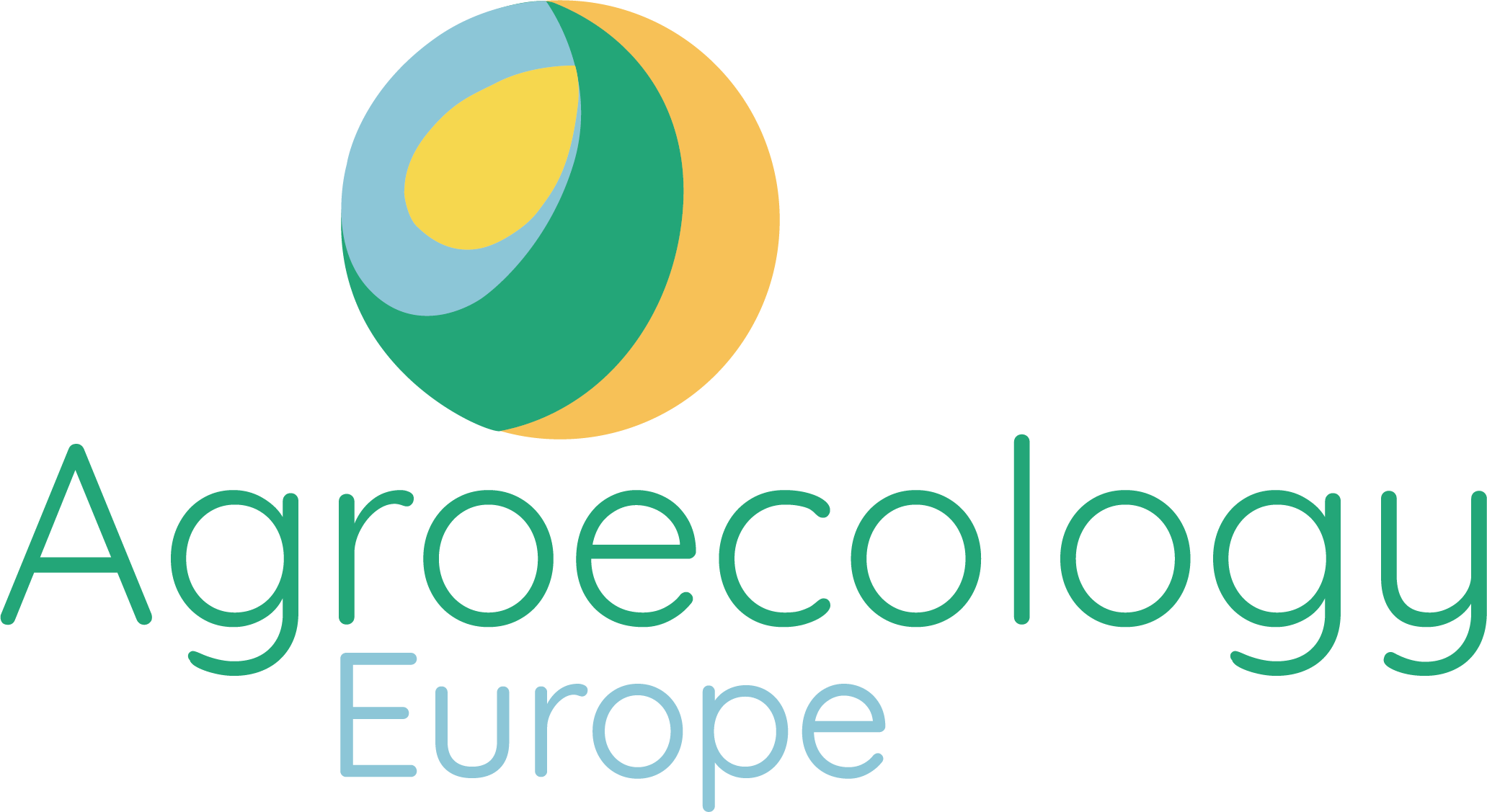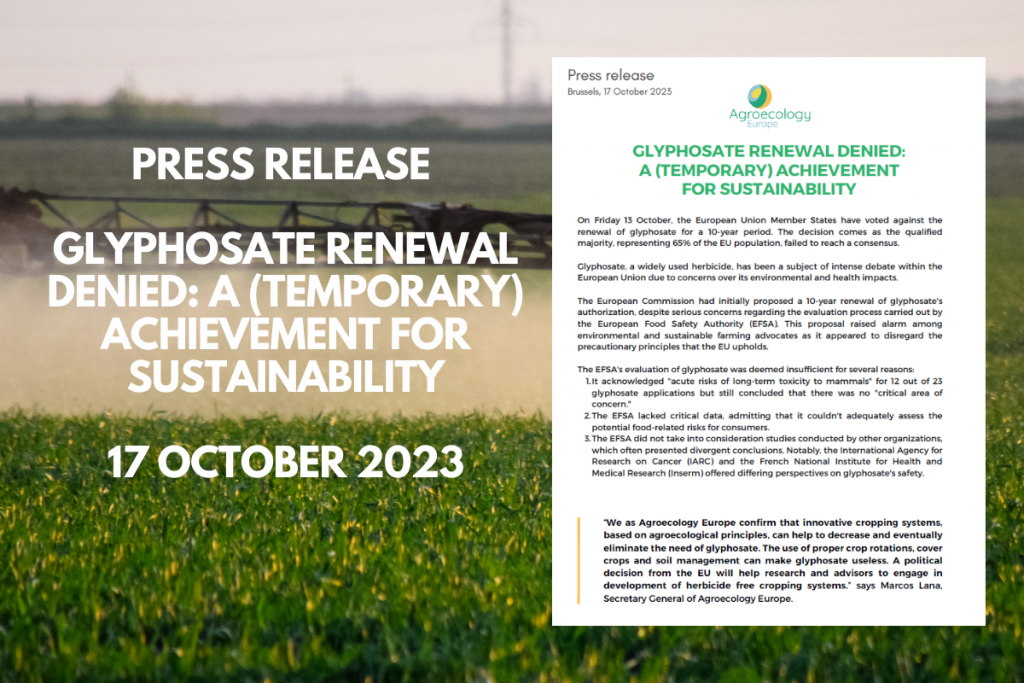Brussels, the 17 October 2023
On Friday 13 October, the European Union Member States have voted against the renewal of glyphosate for a 10-year period. The decision comes as the qualified majority, representing 65% of the EU population, failed to reach a consensus.
Glyphosate, a widely used herbicide, has been a subject of intense debate within the European Union due to concerns over its environmental and health impacts.
The European Commission had initially proposed a 10-year renewal of glyphosate’s authorization, despite serious concerns regarding the evaluation process carried out by the European Food Safety Authority (EFSA). This proposal raised alarm among environmental and sustainable farming advocates as it appeared to disregard the precautionary principles that the EU upholds.
The EFSA’s evaluation of glyphosate was deemed insufficient for several reasons:
- It acknowledged “acute risks of long-term toxicity to mammals” for 12 out of 23 glyphosate applications but still concluded that there was no “critical area of concern.”
- The EFSA lacked critical data, admitting that it couldn’t adequately assess the potential food-related risks for consumers.
- The EFSA did not take into consideration studies conducted by other organizations, which often presented divergent conclusions. Notably, the International Agency for Research on Cancer (IARC) and the French National Institute for Health and Medical Research (Inserm) offered differing perspectives on glyphosate’s safety.
“We as Agroecology Europe confirm that innovative cropping systems, based on agroecological principles, can help to decrease and eventually eliminate the need of glyphosate. The use of proper crop rotations, cover crops and soil management can make glyphosate useless. A political decision from the EU will help research and advisors to engage in development of herbicide free cropping systems.” says Marcos Lana, Secretary General of Agroecology Europe.
AEEU insists on the fact that all agricultural policies must align and actively promote and support agroecological practices that make the use of this herbicide obsolete while maintaining comparable levels of productivity and improving farmers and consumers’ health. A ban on Glyphosate would trigger structural changes in the farming practices towards greater environmental, social and economic sustainability.
This decision, or lack thereof, continues to have far-reaching implications for the environment, biodiversity, and the well-being of all EU citizens, farmers and consumers.
As the discussions goes on—early November, an appeal committee will vote again on this possible extension—Agroecology Europe will closely monitor the situation to ensure that the priority is set to improve the health of farmers, all citizens and ecosystems we rely on.
For further information and media inquiries, please contact:
Henriette Christensen : henriette.christensen@agroecology-europe.org
Elena Ambühl: elena.ambuhl@agroecology-europe.org
About Agroecology Europe
Agroecology Europe, is a non-profit European association intending to place agroecology high on the European agenda of sustainable development of farming and food systems. It wants to foster interactions between actors in sciences, practices and social movements, by facilitating knowledge sharing action. It aims at the creation of an inclusive European community of professionals, practitioners, and more generally societal stakeholders in agroecology.
More information
- See PAN Europe Press Release
- See ARC2020 Press Release
- Upcoming event: International scientific conference “Environment, Work and Health in the 21st Century: Strategies and Solutions to a Global Crisis”, to be held in Bologna, Italy on October 25th. The presented data will be from the most comprehensive toxicological study ever on glyphosate and glyphosate-based herbicides.
- Dominschek R., Arrobas Martins Barroso A., Reisdorfer Lang C., de Moraes A., Sulc R.M., Zanovello Schuster M., Crop rotations with temporary grassland shifts weed patterns and allows herbicide-free management without crop yield loss, Journal of Cleaner Production, Volume 306, 2021, 127140, ISSN 0959-6526, link here

